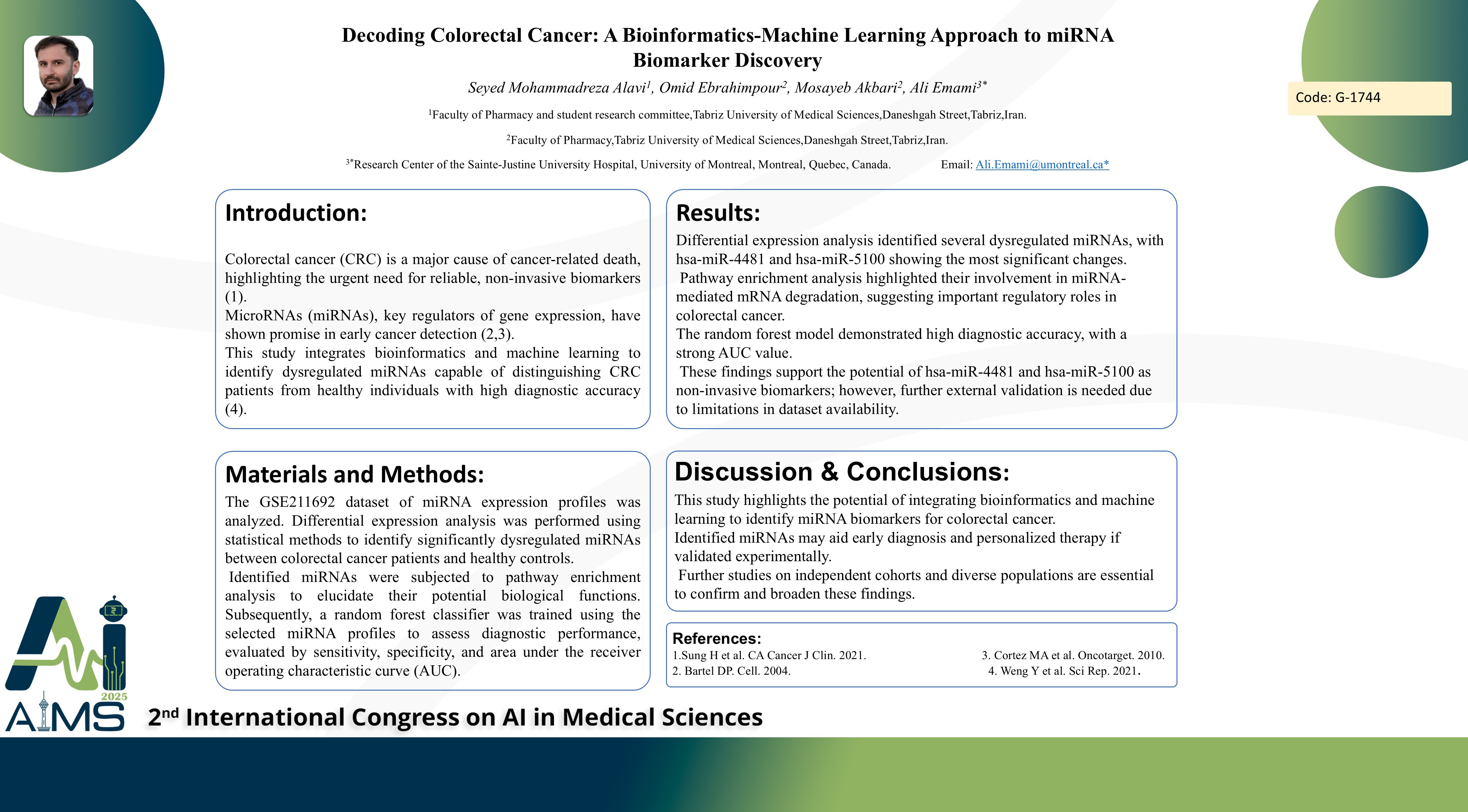Decoding Colorectal Cancer: A Bioinformatics-Machine Learning Approach to miRNA Biomarker Discovery
Code: G-1744
Authors: Seyed Mohammadreza Alavi ℗, Ali Emami *, Omid Ebrahimpour, Mosayeb Akbari
Schedule: Not Scheduled!
Tag: Biomedical Signal Processing
Download: Download Poster
Abstract:
Abstract
Background and aims: Colorectal cancer (CRC) remains a leading cause of cancer-related mortality, underscoring the need for early and accurate diagnostic biomarkers. MicroRNAs (miRNAs) play a critical role in post-transcriptional gene regulation and have emerged as promising candidates for non-invasive cancer detection. This study aims to identify potential miRNA biomarkers for CRC using an integrated bioinformatics and machine learning approach, with the hypothesis that dysregulated miRNAs can distinguish CRC patients from healthy controls with high accuracy. Method: The study analyzed the GSE211692 miRNA expression dataset, applying differential expression analysis to identify significantly dysregulated miRNAs using statistical tools. Pathway enrichment analysis was conducted to explore the biological functions of these miRNAs. A random forest classifier was then trained on miRNA expression profiles to evaluate diagnostic performance based on sensitivity, specificity, and area under the curve (AUC). Results: Differential expression analysis revealed a cohort of dysregulated miRNAs, with hsa-miR-4481 and hsa-miR-5100 showing significant alterations. Pathway enrichment indicated strong involvement in miRNA-mediated mRNA degradation, highlighting their regulatory role in CRC. The random forest model achieved high diagnostic accuracy, supported by a robust AUC, suggesting the potential of these miRNAs as biomarkers. However, further validation is required due to discrepancies in dataset availability. Conclusion: This study demonstrates the utility of combining bioinformatics and machine learning to identify miRNA biomarkers for CRC. The findings suggest that specific miRNAs, if experimentally validated, could facilitate early detection and personalized treatment strategies. Future research should focus on validating these miRNAs in independent patient cohorts and expanding the model’s applicability to diverse populations.
Keywords
Colorectal Cancer, miRNA, Biomarkers, Machine
